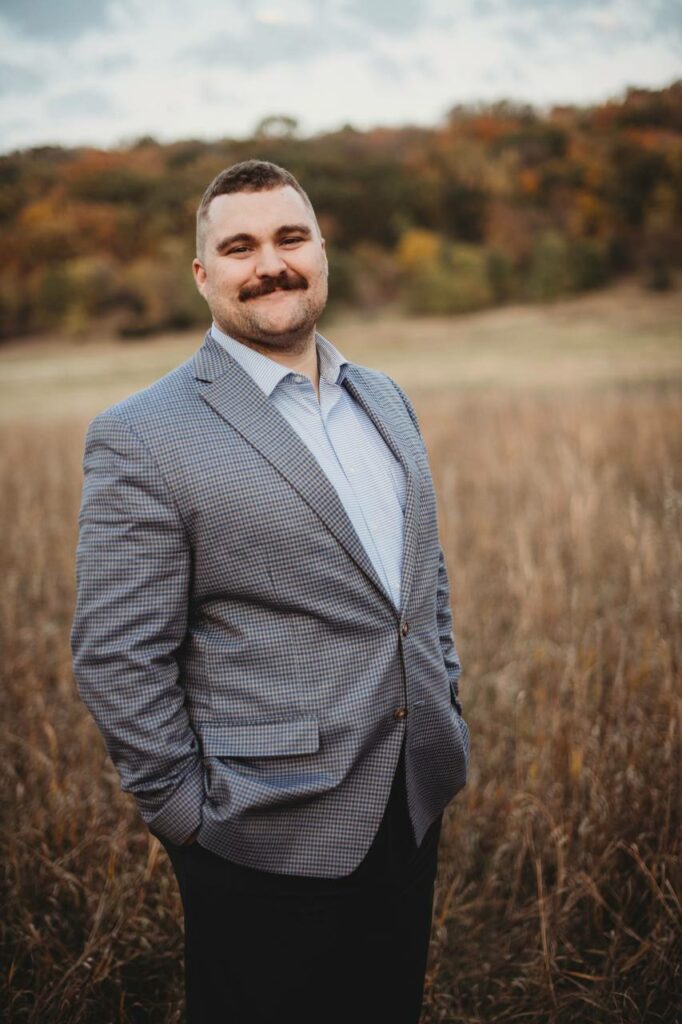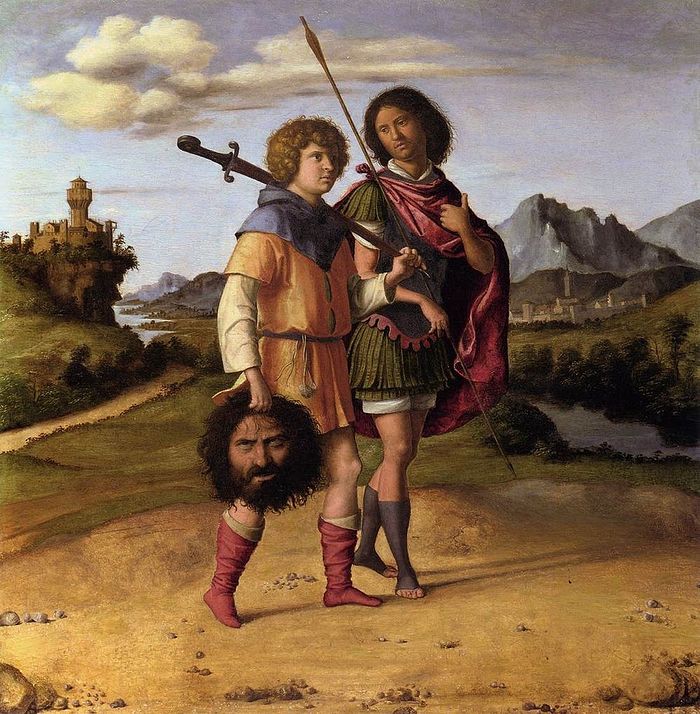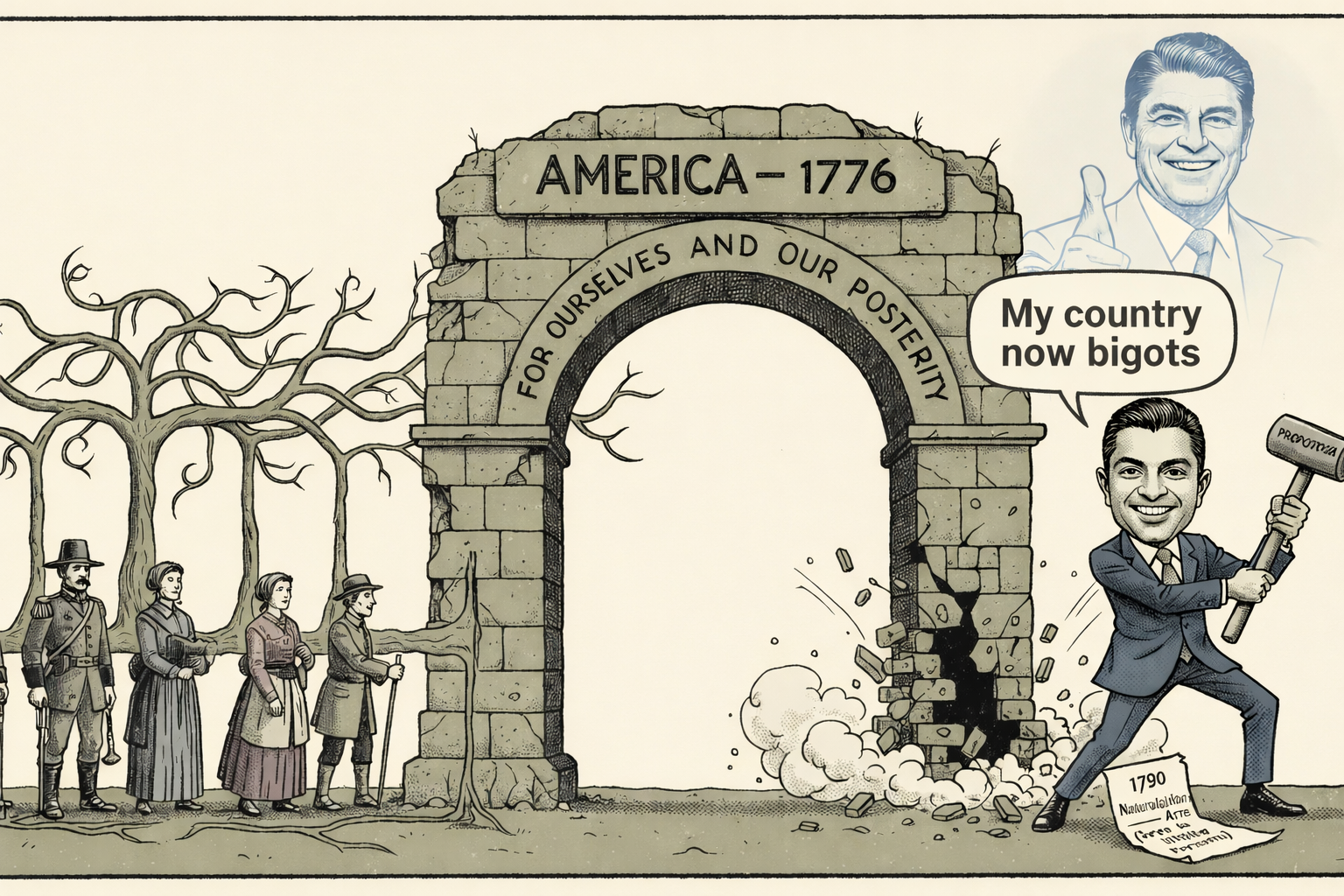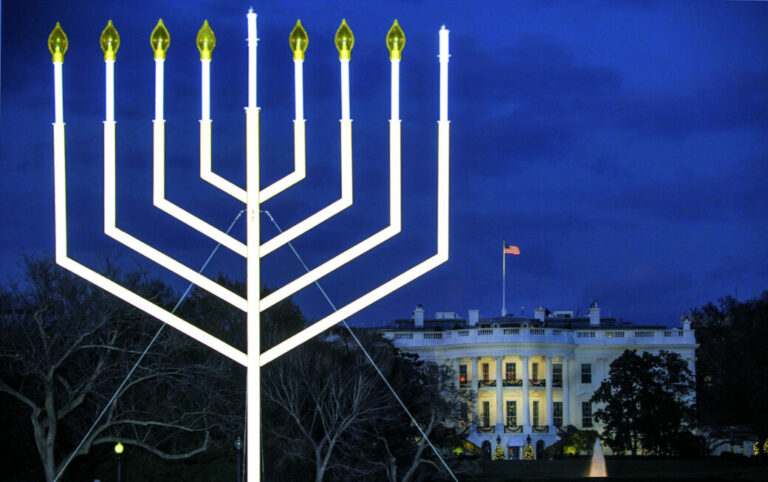Faith as Allegiance in 1 Samuel 20:1-42
In our passage today, we see the heir to the house of Saul pledge his covenant loyalty to the heir to the house of Jesse. We see a transfer of loyalty in Jonathan between his father’s doomed house and his father’s replacement. That is what is in view here, and, if we have eyes to see it, it is a picture, with stunning clarity, of what the gospel of Jesus Christ is.
Catch the First Sermon in this series here.
Catch the Second Sermon in this series here.
Catch the Third Sermon in this series here.
Catch the Fourth Sermon in this series here.
Catch the Fifth Sermon in this series here.
20 Then David fled from Naioth in Ramah, and went and said to Jonathan, “What have I done? What is my iniquity, and what is my sin before your father, that he seeks my life?”
1 Samuel 20:1-42 NKJV
2 So Jonathan said to him, “By no means! You shall not die! Indeed, my father will do nothing either great or small without first telling me. And why should my father hide this thing from me? It is not so!”
3 Then David took an oath again, and said, “Your father certainly knows that I have found favor in your eyes, and he has said, ‘Do not let Jonathan know this, lest he be grieved.’ But truly, as the Lord lives and as your soul lives, there is but a step between me and death.”
4 So Jonathan said to David, “Whatever you yourself desire, I will do it for you.”
5 And David said to Jonathan, “Indeed tomorrow is the New Moon, and I should not fail to sit with the king to eat. But let me go, that I may hide in the field until the third day at evening. 6 If your father misses me at all, then say, ‘David earnestly asked permission of me that he might run over to Bethlehem, his city, for there is a yearly sacrifice there for all the family.’ 7 If he says thus: ‘It is well,’ your servant will be safe. But if he is very angry, be sure that evil is determined by him. 8 Therefore you shall deal kindly with your servant, for you have brought your servant into a covenant of the Lord with you. Nevertheless, if there is iniquity in me, kill me yourself, for why should you bring me to your father?”
9 But Jonathan said, “Far be it from you! For if I knew certainly that evil was determined by my father to come upon you, then would I not tell you?”
10 Then David said to Jonathan, “Who will tell me, or what if your father answers you roughly?”
11 And Jonathan said to David, “Come, let us go out into the field.” So both of them went out into the field. 12 Then Jonathan said to David: “The Lord God of Israel is witness! When I have sounded out my father sometime tomorrow, or the third day, and indeed there is good toward David, and I do not send to you and tell you, 13 may the Lord do so and much more to Jonathan. But if it pleases my father to do you evil, then I will report it to you and send you away, that you may go in safety. And the Lord be with you as He has been with my father. 14 And you shall not only show me the kindness of the Lord while I still live, that I may not die; 15 but you shall not cut off your kindness from my house forever, no, not when the Lord has cut off every one of the enemies of David from the face of the earth.” 16 So Jonathan made a covenant with the house of David, saying, “Let the Lord require it at the hand of David’s enemies.”
17 Now Jonathan again caused David to vow, because he loved him; for he loved him as he loved his own soul. 18 Then Jonathan said to David, “Tomorrow is the New Moon; and you will be missed, because your seat will be empty. 19 And when you have stayed three days, go down quickly and come to the place where you hid on the day of the deed; and remain by the stone Ezel. 20 Then I will shoot three arrows to the side, as though I shot at a target; 21 and there I will send a lad, saying, ‘Go, find the arrows.’ If I expressly say to the lad, ‘Look, the arrows are on this side of you; get them and come’—then, as the Lord lives, there is safety for you and no harm. 22 But if I say thus to the young man, ‘Look, the arrows are beyond you’—go your way, for the Lord has sent you away. 23 And as for the matter which you and I have spoken of, indeed the Lord be between you and me forever.”
24 Then David hid in the field. And when the New Moon had come, the king sat down to eat the feast. 25 Now the king sat on his seat, as at other times, on a seat by the wall. And Jonathan arose, and Abner sat by Saul’s side, but David’s place was empty. 26 Nevertheless Saul did not say anything that day, for he thought, “Something has happened to him; he is unclean, surely he is unclean.” 27 And it happened the next day, the second day of the month, that David’s place was empty. And Saul said to Jonathan his son, “Why has the son of Jesse not come to eat, either yesterday or today?”
28 So Jonathan answered Saul, “David earnestly asked permission of me to go to Bethlehem. 29 And he said, ‘Please let me go, for our family has a sacrifice in the city, and my brother has commanded me to be there. And now, if I have found favor in your eyes, please let me get away and see my brothers.’ Therefore he has not come to the king’s table.”
30 Then Saul’s anger was aroused against Jonathan, and he said to him, “You son of a perverse, rebellious woman! Do I not know that you have chosen the son of Jesse to your own shame and to the shame of your mother’s nakedness? 31 For as long as the son of Jesse lives on the earth, you shall not be established, nor your kingdom. Now therefore, send and bring him to me, for he shall surely die.”
32 And Jonathan answered Saul his father, and said to him, “Why should he be killed? What has he done?” 33 Then Saul cast a spear at him to kill him, by which Jonathan knew that it was determined by his father to kill David.
34 So Jonathan arose from the table in fierce anger, and ate no food the second day of the month, for he was grieved for David, because his father had treated him shamefully.
35 And so it was, in the morning, that Jonathan went out into the field at the time appointed with David, and a little lad was with him. 36 Then he said to his lad, “Now run, find the arrows which I shoot.” As the lad ran, he shot an arrow beyond him. 37 When the lad had come to the place where the arrow was which Jonathan had shot, Jonathan cried out after the lad and said, “Is not the arrow beyond you?” 38 And Jonathan cried out after the lad, “Make haste, hurry, do not delay!” So Jonathan’s lad gathered up the arrows and came back to his master. 39 But the lad did not know anything. Only Jonathan and David knew of the matter. 40 Then Jonathan gave his weapons to his lad, and said to him, “Go, carry them to the city.”
41 As soon as the lad had gone, David arose from a place toward the south, fell on his face to the ground, and bowed down three times. And they kissed one another; and they wept together, but David more so. 42 Then Jonathan said to David, “Go in peace, since we have both sworn in the name of the Lord, saying, ‘May the Lord be between you and me, and between your descendants and my descendants, forever.’ ” So he arose and departed, and Jonathan went into the city.
Jonathan Protects David, Again (20:1-23)
David is on the run from Saul, and he needs help. And more than anything else, he needs to know why Saul is attacking him. Remember, David has not done anything wrong. So he goes to his friend, Jonathan, Saul’s son and heir, and asks him why this is happening. Jonathan tells David that he will do whatever David asks. David, of course, has a plan. There is a festival of the New Moon that Saul would preside over, and David, obviously, is not going to attend. He plans to hide in the field until the third day. (The third day is almost always a day of judgment in the Bible). On the first day, Saul might assume David is ceremonially unclean and could not attend, but after a day, that would change, and by the third day, Saul would inquire about him. At that point, Jonathan was to lie to Saul and tell him David asked to go to his family’s feast instead. And that would be the tell for Jonathan to know if Saul meant evil for David. If Saul didn’t care, David was fine. But if Saul got angry, David was in trouble.
After discussing this plan, Jonathan vows to do it and affirms the covenant between David and himself, not just between them as individuals but between their houses. This is very important, and we will return to this in a moment.
Before the feast, Jonathan tells David how he will communicate what he determines from his father. David is to go to the place he first hid, and Jonathan will shoot some arrows. If he tells the young man with him that the arrows are close to him, then David is safe. But if he tells the young man that the arrows are far off, David needs to flee because the Lord has sent him away.
The Feast of Judgment (v. 24-34)
So Jonathan goes to the feast, and Saul assumes David’s lack of attendance was due to ceremonial uncleanness. And on the second day, Saul inquires, and Jonathan tells him the lie. And Saul became angry. Not just at David but at Jonathan! Saul even cursed and defamed Jonathan’s mother. Saul even tells Jonathan that he chose David to shame Jonathan and to dispossess him as heir (when the reality is that the Lord chose David to dispossess and shame Saul!—interesting how Saul projects here!) Jonathan objects and asks why David should be killed since he is innocent. And in response to this objection, Saul thrusts his spear at Jonathan—the two are bound not only by covenant but also by deed! Jonathan leaves in anger, refuses to eat the feast, and grieves for David.
Jonathan says “Goodbye” (v. 35-42)
Jonathan goes out to the field, shoots his arrows just as he had said, and tells the boy they are far off. Then, he sent the boy back to the city with his weapons, which allowed Jonathan to speak to David. Jonathan bows down to David three times. What does this mean? That Jonathan, though David’s superior, is now pledging fealty to David, the next king. And they kissed each other and wept. Then David tells Jonathan to go in peace and reminds him of the covenant they swore before the Lord between their two houses. And both went their separate way.
Conclusion
This is a story about loyalty. Who is it that you are loyal to? Jonathan is part of the house of Saul. This is not just family loyalty but political loyalty. The very most important thing to a king is loyalty. Who can I trust? It doesn’t matter to the king how great or skilled his generals or nobles or even sons are if there is a chance they could stab him in the back. This is part of Saul’s madness because David is greater than he is; he assumes David is absolutely going to overthrow him—despite zero indications of this. Throughout the rest of this book, David maintains his innocence and refuses to overthrow Saul every chance he gets.
But the protagonist of this chapter isn’t David or Saul; it is Jonathan. Jonathan’s loyalty naturally lies with his father’s house. But his loyalty to David supersedes this. Jonathan is not guilty of breaking the Fifth Commandment here. Just as Jesus says, “he who does not hate mother, father, sister, or brother is not worthy of me” (Luke 14:26). So Jonathan is pledging his loyalty to David’s house, which will ultimately bring about the Christ. In fact, Jonathan’s conduct here gives meaning to that often abused passage. Jesus is not giving people license to violate the Fifth Commandment and despise their parents and family. He is saying that covenant loyalty to His Kingdom supersedes loyalty to your family, and if there is ever a conflict between the two, you must remain loyal to His Kingdom. Contrast this with the once-Christian parents who publicly approve of homosexuality after one of their children announces he is a homosexual. It no longer matters to him that God’s Word says that the just penalty for even giving your approval to such things is death, “love is love.” Loyalty to Christ’s Kingdom (and genuine love for your child) means not approving their sin.
Further, Jonathan’s loyalty to David is an exact picture of what faith in Jesus Christ is. Far too often, we view faith in Christ as an individual decision only inside our heads. But that is not what Jonathan did here or when we trust in Christ. Jonathan’s loyalty to David changed how he lived. He wasn’t “loyal to David” just to then later betray him to Saul at the first opportunity. Jonathan was nearly killed for his loyalty to David. Faith in Christ necessitates a change in will and a change in action. This is the meaning behind the Parable of the Talents in Luke 19:11-27: will you be loyal to your king when you have every opportunity to betray Him? Because that is what faith is—it is costly loyalty.
Furthermore, look at the covenant Jonathan and David made. They did not make this covenant as individuals; they made it for their two houses and in perpetuity. Their descendants are bound by this covenant, though they are not even born yet, nor did they personally choose to pledge their loyalty to David.
Now, even though Jonathan’s unborn progeny have not personally decided to follow David, being raised in the house of Jonathan, they will be trained to be loyal to David. Is it possible some of them rebel against David and betray him? Of course, and they are the exception. The rule is faithfulness to David over generations. So also is faith in Christ. When you pledge your loyalty to Jesus Christ and His Kingdom, you are not doing so as an individual but for all those who will come after you. The New Testament even outlines an explicit duty to train the next generation to be loyal to Christ’s kingdom.
As Christians, you have joined a covenant like the one in 1 Samuel 20. You are no longer your own. Your descendants are no longer their own, either. The Apostle Peter in Acts positively proclaims this: God’s covenant promises belong to you and your children. But the promises are contingent upon loyalty. So the charge to you is this: trust in those promises: just as Jonathan trusted David to protect Him, you must trust in Christ to protect you from death and damnation. Remain loyal to Jesus Christ and His Kingdom. In the Name of the Father, the Son, and the Holy Spirit! Amen!

Andrew Isker is the pastor of 4th Street Evangelical Church in Waseca, MN. He is a graduate of Minnesota State University and Greyfriar’s Hall Ministerial Training School, and he has served churches in Missouri, West Virginia, and Minnesota. He is the author (with Andrew Torba) of Christian Nationalism, and the author of the forthcoming book, The Boniface Option. Andrew, his wife Kara, and their five children reside in his hometown of Waseca, MN. He can be found on Gab @BonifaceOption.





